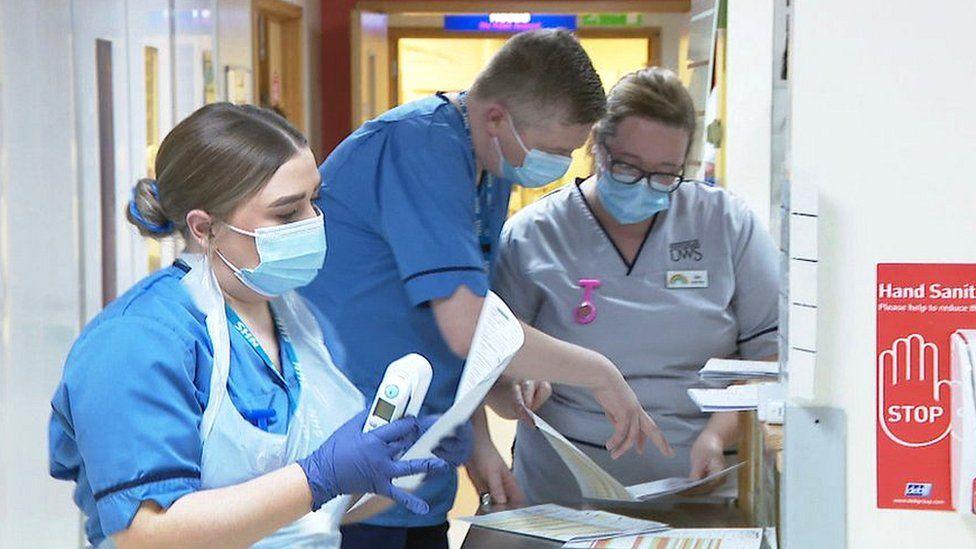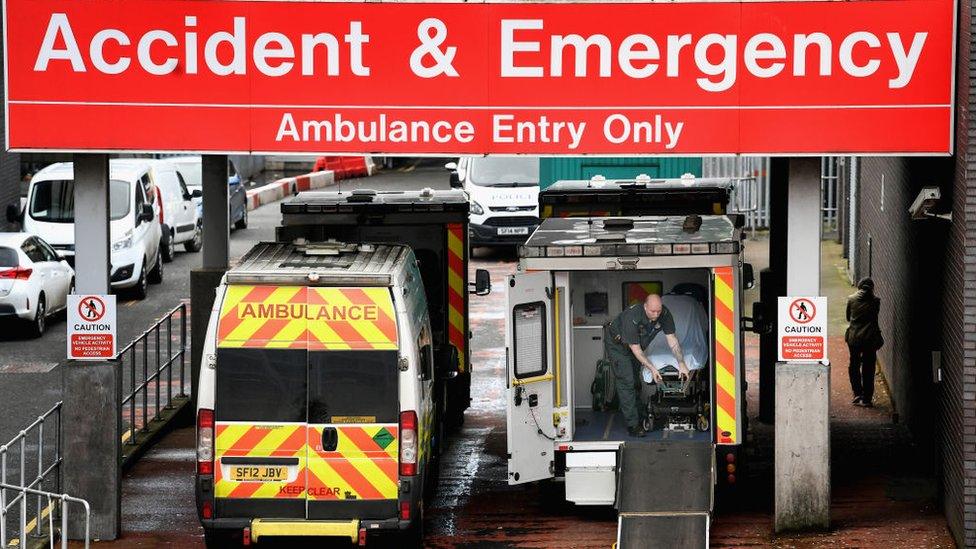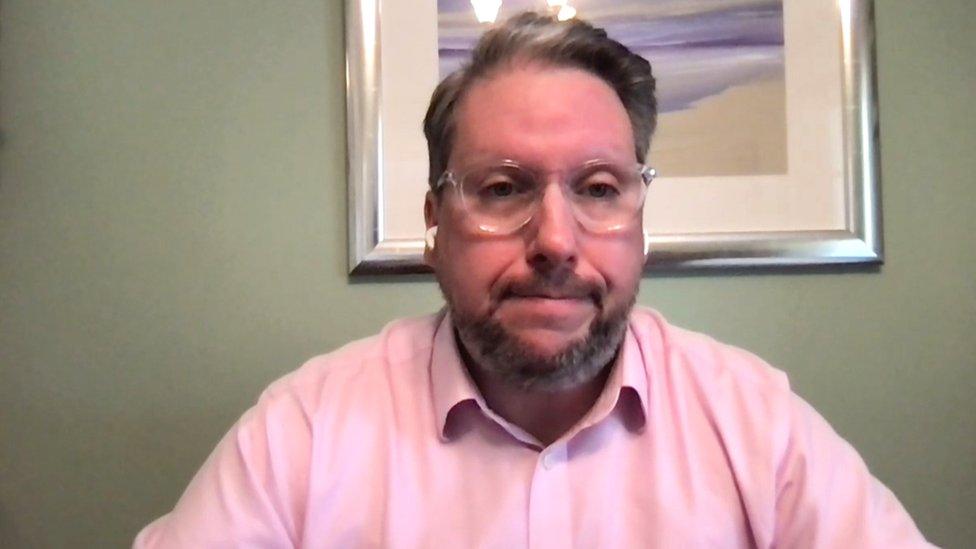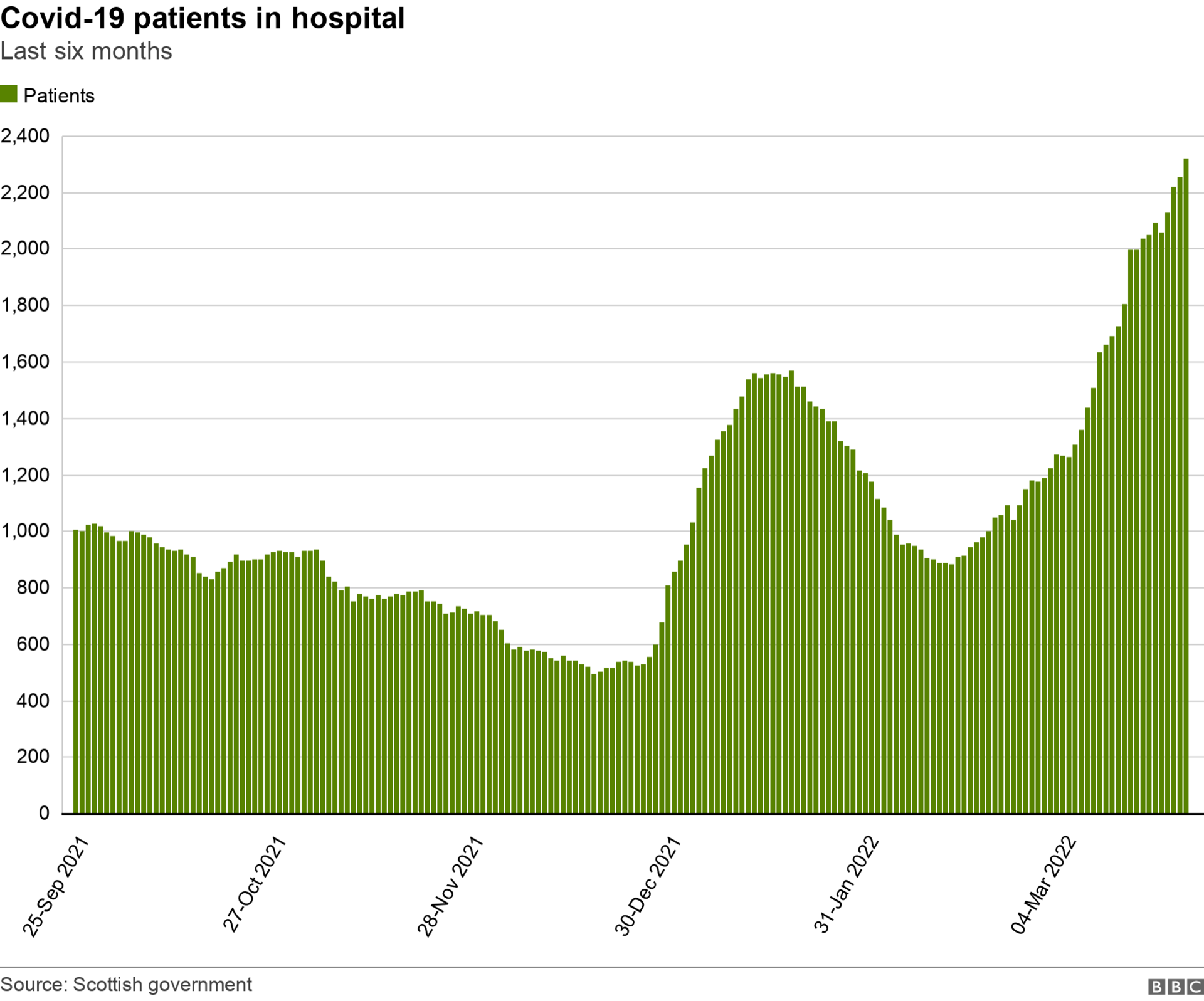Hundreds of patients dying due to A&E delays, doctors say
- Published

Hundreds of patients are dying unnecessarily in Scotland because of delays while they wait in A&E, doctors have said.
The Royal College of Emergency Medicine estimates there has been 240 avoidable deaths since the start of the year.
Figures published earlier this week showed record numbers of people waited longer than they should to be seen.
It comes amid warnings that the NHS in under the greatest pressure in its history.
Scotland's biggest health board, Greater Glasgow and Clyde, has urged patients not to come to an emergency department unless their condition is very serious or life-threatening.
The board has warned that Covid pressures across its hospitals are as "serious as it gets".
Other health boards across the country are facing similar pressures.
Scotland-wide figures showed that 31% of people who attended an emergency department in the past week waited longer than four, eight or 12 hours to be seen.
The number of patients in hospital with Covid has also hit a new record high for the fourth day in a row - with Health Secretary Humza Yousaf warning that things could get worse before they get better, with the numbers likely to increase further over the next couple of weeks.
There were 2,322 Covid patients in hospital on Thursday - up from 2,257 on the previous day.

Scotland is experiencing its biggest crisis in emergency care, according to doctors
The Royal College of Emergency Medicine (RCEM) says there has never been such sustained pressure on A&E departments.
It says a lack of capacity, staff shortages and Covid pressures are leading to a full-blown crisis.
Dr John Thomson, vice president of the RCEM in Scotland, said: "Harm is coming to patients and that is absolutely unacceptable and avoidable.
"That is simply patients on trolleys in our emergency departments around Scotland waiting for a bed.
"This is beyond doubt the biggest crisis that we have faced in emergency care."

Dr John Thomson has described the A&E situation as a full-blown crisis
Dr Thomson said there was now "clear evidence that long waits in emergency departments are directly associated with patient death".
He added: "By our figures, in terms of eight-hour waits for last year, we estimate there were 612 avoidable deaths.
"Up to mid-March we have had 240 already this year.
"Patients waiting greater than 24 hours is now becoming increasingly common throughout Scotland.
"The rhetoric of, it's bad but we're not as bad as elsewhere, is no longer applicable. We are just as bad as the rest of the UK."

The RCEM says much of the problem is down to a lack of capacity within the system to allow patients to move "in a timely fashion" to the next level of care.
Dr Thomson said: "Our emergency departments are crowded and that's the norm now.
"Patients are waiting longer to be seen and for a bed than ever before.
"We estimate that we are approximately 1,000 acute care beds short throughout the country.
"That equates to a number of new hospitals in terms of bed capacity. And unfortunately that's not something that's going to be solved in the short term."
Support staff
The health secretary has told MSPs it will take years for the NHS to recover from the pandemic and the pressure it has put on the entire healthcare system.
In a statement at Holyrood, Mr Yousaf pledged to work day and night to support staff.
He said controlling community transmission of the virus was vital to relieving the strain on the whole NHS.
But he insisted that, despite the challenges, the health service was coping.
Mr Yousaf said: "This level of continued pressure is challenging in the context of a health service that has been dealing with sustained and relentless demand and pressure for nearly two years.
"Unlike in wave one of the pandemic, when services were stood down, we are of course remobilising our NHS."